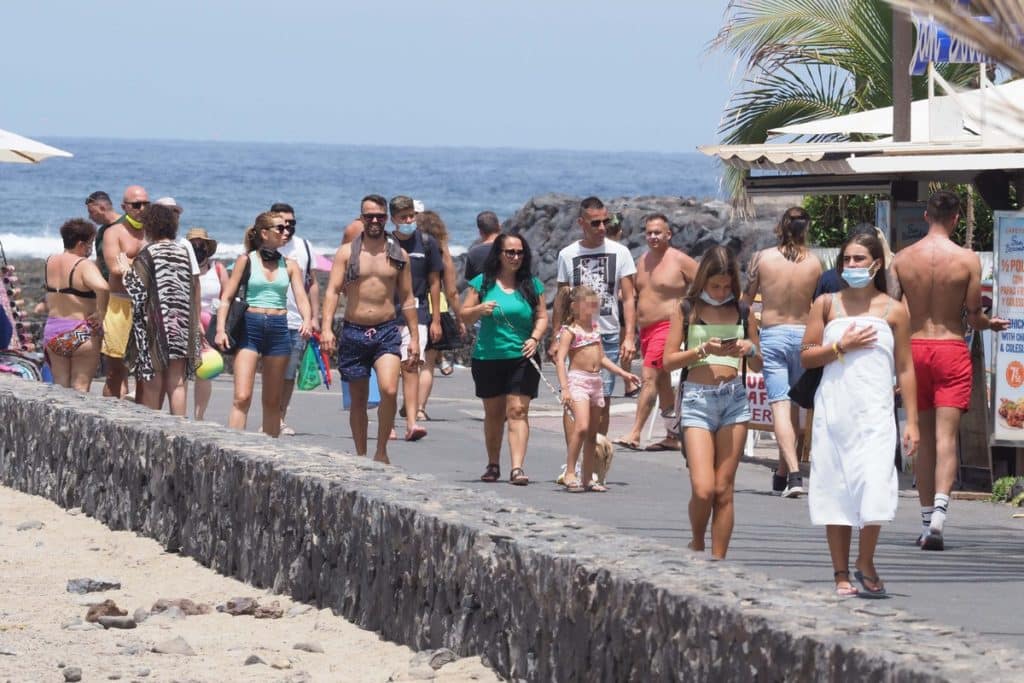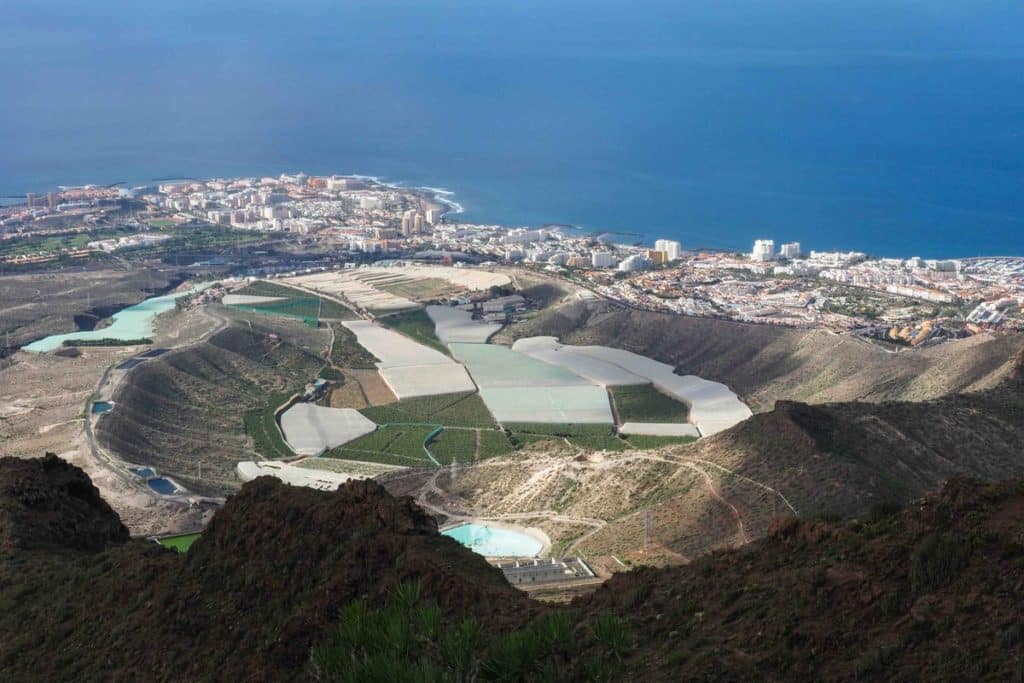The tourismphobia It is considered as the fear, aversion or social rejection that local citizens of a destination feel towards tourists, generally due to poor planning of tourism policies, whose exploitation causes the destruction of the social fabric and tends to decrease the quality of tourism. local life. There has been talk of tourismophobia in stressed places such as Barcelona or the Balearic Islands, and recently in Tenerife a similar episode has been experienced, with the manifestation last May 20 in Playa de las Americas and Los Cristianosorganized by different environmental groups.
A demonstration, theoretically with the purpose of demanding sustainable tourism, but which led to almost violent episodes, as if the tourists were criminals. “What’s wrong with you, monkey? Rise up, brave! Guy, come here! Go home, go home!” These are some of the phrases that the protesters threw at some tourist, according to them, “answer back.”
The mayor of Adeje and president of the Association of Tourist Municipalities of the Canary Islands (AMTC), pointed out a few days ago in Onda Tenerife, considered the fact as “a dangerous movement and trend, when they see tourism as a danger”, surprising him by the slogan of the demonstration, ‘Tenerife is no longer a paradise’. Fraga wonders: “When was Tenerife a paradise? In the 50s, when a woman gave birth to five children and four died, when our grandparents and parents emigrated to Venezuela because there was nothing to eat here, when women were attached to the earth and to the tomato plants, being exploited in a bad way, that is the paradise we want”. The mayor of Adeje insists that “they are very unfocused, because tourism is our source of wealth, and we have to take care of it, but never scolding tourists as if they were criminals, or is it that they no longer remember when two years ago the hotels and bars; that’s the world we want. You have to make a serious reflection, really, because what is the alternative ”.
“The parties cannot stand in profile before the radicalism of these minorities and their dogma, we cannot renounce well-being, the modern world, to go live in the caves as some of them do”, Fraga points out, also recalling the paralysis from the Cuna del Alma hotel complex, in El Puertito de Adeje.
Josefa Mesa, acting mayor of Guía de Isora, affirms that “in our municipality we have not noticed that feeling, perhaps because we have differentiated ourselves from other areas with large concentrations of hotels. In Guía we have three complexes but all of them are always selected and integrated into the landscape”.

Jaime Coello: “We don’t fit so many”
Jaime Coello, from the Telésforo Bravo Foundation, one of the organizers of the demonstration for sustainable tourism, explains that “I don’t think there is tourismophobia, but what I do believe is that things are getting extreme, because we are talking about an island with a million inhabitants and five tourists a year, with a percentage of occupied area, and to that must be added the holiday home, spreading throughout the island. Practically the entire island is touristy and that is generating rejection, because many residents here do not have money to rent in the city centers, in addition to what is 8 vehicles for every ten inhabitants and people have begun to realize that we don’t all fit. There was a beautiful poster at the demonstration that said ‘The Canary Islands do not live from tourism, tourism lives from the Canary Islands’, reflecting that the crumbs of tourism remain here. And we must add to this the generation of waste, water consumption, without having the reward that we should have, in addition to the pressure that tourism is generating in natural spaces such as Teide. I would not speak of tourismophobia, but of discomfort, which our politicians must tackle, with a quota to reduce the number of tourists and put an eco-tax, otherwise we are going to have serious problems”.

The employers, concerned
The hotel management of Tenerife, Ashotel, has opposed the implementation of a tourist tax -now with CC and PP in the next Government of the Canary Islands, this is a long way off-, to warn of tourismophobia and to provide housing for the workers in the tourism sector, among other demands. The hoteliers show their concern about the tourism model that in their opinion “is leading to a clear tourismophobia” towards a sector that represents 35% of GDP, 40% of employment and that has allowed development and well-being “unthinkable” 40 years ago. or 50 years.
The employers’ association points out that it respects “any position that flees from violent demonstrations” and encourages the groups that want another model “to seriously consider alternatives.”
“We must improve, especially in the face of the challenges of tourism sustainability”, but “traditional accommodation activity (hotels and apartments) cannot be blamed for the gentrification processes caused by the lack of adequate regulation for holiday homes”, he points out. Jorge Marichal, from Ashotel, to conclude that “some groups and political parties have sought tourism as the scapegoat for their frustrations.”
To alleviate the housing problems for workers in the tourism sector, Ashotel asks the parties to identify pockets of soil in the tourist municipalities for the construction of social housing.
The president of the Canarian Association of Vacation Rentals, Doris Borrego, has called for responsibility from the hotel management, considering that the use of expressions such as “tourismophobia” or “gentrification” triggers social alarm. “With things to eat is not played. Tourism also provides us with wealth and many jobs. Of course we recognize that it is necessary to meditate and rethink the direction in the islands. We have obsolete regulations from 30 years ago, new ways of traveling and understanding tourism. They have to be discussed and accepted, but behind closed doors. All sitting at a table, prudently, ”she points out.
The CEOE of Tenerife demands that the escalation of tension at the tourist level that in its opinion is experienced on the island be stopped “now”, since this rejection and hostility towards tourism can leave “a significant mark” in the sector “and therefore endanger” employment in the archipelago. In a statement entitled ‘They do not represent us’, he asserted that the island is facing an alarming phenomenon known as tourismophobia, in demonstrations “that have come from various groups that are demanding, among other issues, a tourist moratorium, the implementation of the eco-tax and the application of a Residence Law”. “They are the same groups that have even come to direct confrontations with the tourists themselves,” says the CEOE.















